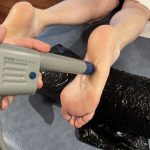Ultimate Guide to Winter Vehicle Preparedness: Ensure Safe and Confident Driving
The winter season transforms our surroundings into stunning landscapes draped in snow, creating a serene atmosphere perfect for cozy evenings by the fireplace. However, this beautiful season also introduces various challenges, especially when it comes to driving on icy roads and facing unexpected emergencies. As responsible drivers, it is vital to prepare thoroughly for any situation that may arise during these colder months, equipping ourselves with the necessary tools and knowledge. Just imagine being caught in a winter storm, stranded on a desolate road with no assistance in sight—it’s a frightening scenario. But don’t worry! This detailed guide will highlight the crucial steps you need to take to ensure your vehicle is primed for any winter emergency, giving you peace of mind for safe travels throughout the season.

Ensure Your Safety First: Remove Snow and Ice from Your Vehicle Completely
Before embarking on any journey, it is imperative to ensure that your vehicle is entirely free of snow and ice. While this task might seem simple, many drivers unfortunately neglect this crucial step. Accumulated snow on the roof, hood, or windows can drastically obstruct your vision, leading to dangerous driving conditions. In some instances, the snow may slide down onto your windshield, resulting in a sudden loss of visibility while driving. Additionally, chunks of snow or ice can become hazardous projectiles, posing risks to other vehicles on the road. Therefore, equip yourself with a reliable scraper and brush, and thoroughly remove all snow and ice from your vehicle’s surfaces. This proactive measure greatly enhances your safety and the safety of others while driving during winter, ensuring you have clear visibility and reducing the risk of accidents.
Boost Traction and Safety: Conduct a Thorough Tire Inspection for Winter Driving
Your tires are the primary contact point between your vehicle and the road, making them essential for grip and safety during winter driving conditions. Before the onset of cold weather, it is crucial to evaluate their condition, ensuring they are properly inflated and in excellent shape. Cold temperatures can lead to decreased tire pressure, which significantly diminishes traction on icy or snowy roads. Always refer to the manufacturer’s recommended tire pressure levels, which can typically be found in your vehicle’s manual or on a sticker located on the driver’s side door jamb.
Moreover, the tread depth of your tires plays a critical role in your vehicle’s performance on snow and ice. While the legal minimum may be 2/32 of an inch, selecting tires with deeper tread can greatly enhance grip and handling ability. Consider investing in winter or snow tires specifically designed for low-temperature conditions to ensure enhanced traction and handling. Remember, well-maintained tires can be the crucial factor that keeps you safely on the road, preventing dangerous situations and providing the necessary support for your vehicle during winter travel.
Ensure Battery Readiness: Guarantee Your Vehicle Starts Every Time in Winter
Imagine being fully prepared for your winter adventure only to discover that your vehicle refuses to start due to a failing battery. Avoid this frustrating scenario by proactively assessing your battery’s condition before the temperatures drop. Many auto parts retailers offer complimentary battery inspections, and taking advantage of this service can ensure your battery is in peak condition.
Winter weather can place additional stress on your battery; therefore, it is essential to keep the terminals clean and free from any corrosion. Look for signs of aging or wear, and make sure all connections are secure. If you find that your battery is nearing the end of its life, it is wise to replace it proactively to prevent being left stranded in the cold due to a dead battery. Keeping your battery in optimal condition is key for reliable winter travel, giving you confidence that your vehicle will start when you need it most.
Fluid Levels Matter: Maintain Essential Vehicle Fluids for Optimal Winter Operation
Maintaining the appropriate levels of essential fluids in your vehicle is critical for optimal performance during winter driving. Start by checking your engine coolant, commonly referred to as antifreeze, which is designed to prevent your engine from freezing. It is crucial to ensure this fluid is at the recommended levels for efficient operation. If you are uncertain about the proper levels, consult your vehicle manual or seek advice from a qualified professional.
Next, inspect your windscreen washer fluid. Winter roads can quickly become slushy and dirty, obscuring your view. Refill your washer fluid, preferably with a winter blend that remains effective even in freezing temperatures. Don’t overlook checking your brake fluid and engine oil; ensuring they are at the appropriate levels is essential since cold temperatures can negatively affect their performance. Properly maintained fluids are vital for your vehicle’s smooth operation and overall safety, especially during the winter months, allowing you to navigate challenging conditions without worry.
Be Ready for Emergencies: Assemble a Comprehensive Winter Emergency Kit for Your Vehicle
In the event of a winter crisis, having a well-stocked emergency kit in your vehicle is like having a dependable companion with you. Make sure your kit includes critical items such as a reliable flashlight, extra batteries, jumper cables, a reflective vest, a warm blanket, gloves, and a hat. Additionally, don’t forget to include a first aid kit, non-perishable snacks, and water as essential supplies to have on hand. You might also consider adding a portable phone charger, a compact shovel, and materials like sand or kitty litter to improve traction if you become stuck.
Always keep in mind that being prepared for the unexpected is essential for safely navigating winter conditions. Regularly check and replenish your emergency kit to ensure you are equipped to handle any situation that may arise. Being proactive can make a significant difference in your safety during winter travel, providing you with the tools you need to respond effectively to any emergencies.
Enhance Your Safety: Ensure All Vehicle Lights are Functioning Properly for Winter Driving
With shorter days and longer nights during the winter months, ensuring that your vehicle’s lights are functioning correctly is paramount for safety. Take the time to inspect all external lights, including turn signals, brake lights, headlights, and taillights. Replace any burnt-out or dim bulbs to maintain optimal visibility for both yourself and other drivers on the road. Proper lighting not only improves your visibility while driving but also ensures that you are visible to other drivers, reducing the risk of accidents during critical moments when conditions can change rapidly.
Wiper Blades Matter: Ensure Unobstructed Visibility During Harsh Winter Weather
Winter weather frequently brings snow, freezing rain, and slushy road conditions that can severely impair visibility. To combat these challenges, it is essential to have wiper blades that are in excellent working condition. If your current wipers are leaving streaks or failing to effectively remove moisture, it is time for a replacement. Consider investing in winter-specific wiper blades designed to handle harsh conditions, as they can significantly improve your visibility during snowstorms and freezing rain, ensuring you can navigate safely even in the most challenging winter weather.
Stay Informed: Regularly Monitor Weather and Road Conditions for Safer Travels
To effectively navigate the challenges of winter driving, staying informed about weather conditions and potential road closures is crucial. Before setting out on any journey, check the weather forecast and remain aware of possible hazards along your route. Utilizing weather apps, tuning into local news stations, or listening to radio announcements can provide you with real-time updates on changing conditions, allowing you to make informed decisions.
Additionally, it’s wise to inform someone of your travel plans, including your intended route and estimated arrival time. This way, should any emergencies arise, someone will know where to look for you. By following these simple yet effective tips, you can be well-prepared for any winter emergency, ensuring a safe journey. Remember, it’s always better to be over-prepared than caught off guard. Enjoy the beauty of the winter season while ensuring your vehicle is equipped to handle whatever challenges lie ahead. Safe travels!
The post Preparing Your Vehicle: Stay Ahead of Winter Challenges appeared first on Survival Bite.
The Article Preparing Your Vehicle for Winter Challenges Ahead Was Found On https://limitsofstrategy.com


This guide is certainly timely and relevant, especially with winter weather conditions becoming increasingly unpredictable in many regions. I appreciate the emphasis on safety and preparedness, as it’s easy to overlook these aspects amidst the cozy allure of the season.
Winter can really catch us off guard, can’t it? The cozy vibe is hard to resist, but it’s crucial to remember that underneath the charm, unpredictable weather can pose real risks. It’s not just about having the right gear; it’s about cultivating a mindset of preparedness that allows us to enjoy the season without holding our breath every time the forecast changes.
Reading through this guide on winter vehicle preparedness really resonates with me, especially as we approach those months where driving can quickly turn from routine to perilous due to sudden weather changes. The imagery of cozy evenings by the fireplace contrasts starkly with the reality of being stranded on a cold, icy road, which is a scene that no one wants to find themselves in. Your emphasis on the need to thoroughly remove snow and ice from our vehicles touches on a critical aspect many might overlook in the hustle and bustle of winter preparations.